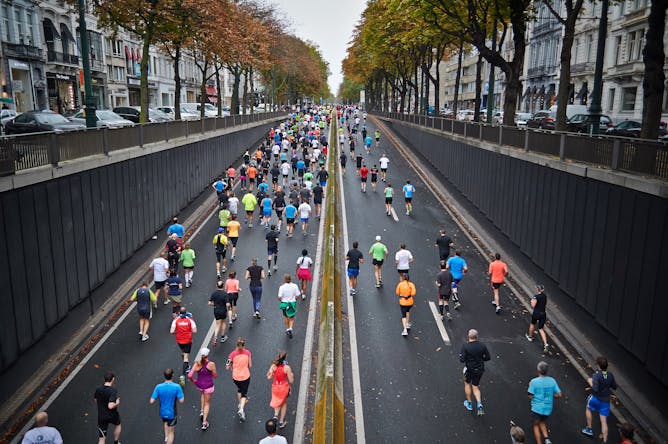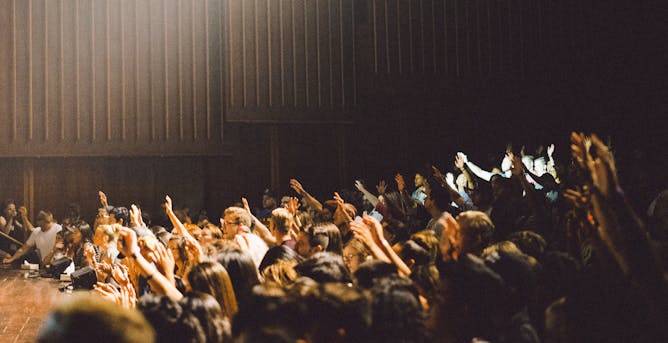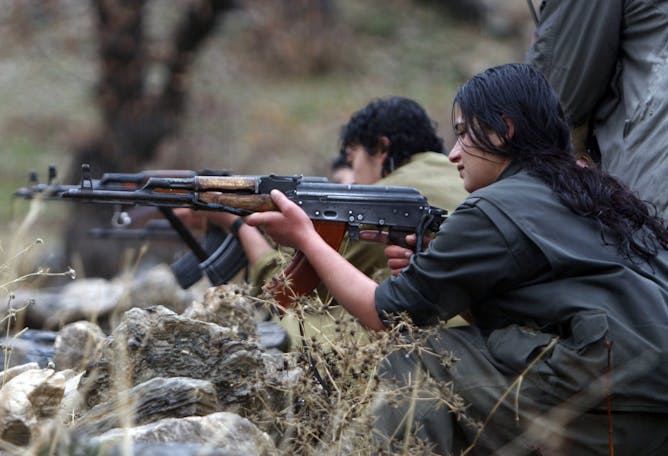|
As the New Year begins, we’re bombarded with the message that thin is virtuous and fat is lazy.
“We are continually told we can all be thin if we eat less and exercise more but that assumption is unscientific,” writes Patty Thille of the University of Manitoba.
Today in The Conversation Canada, she busts the myth that weight loss is all about self-discipline, tracing the idea back to early Protestant values.
Later this year, Canadians will go to the polls in the 2019 federal election. For Canada to be a truly free and democratic society, Barry Wellar of the University of Ottawa suggests five ways to improve freedom of information legislation.
At the University of Waterloo, Amir Al-Azraki is teaching students about political, social and personal oppression. He explains how his Theatre for Social Change course is tackling issues like racism, abortion and disability.
And in our final story of the day, Dilan Okcuoglu of Queen’s University shares her research from Turkey’s war-torn Kurdish borderlands. She explains why the Turkish-Kurdish peace process failed.
Regards,
|

The idea that fat is lazy and thin is virtuous has its roots in Christianity and is perpetuated by industry and media today.
(Unsplash/ Mārtiņš Zemlickis)
Patty Thille, University of Manitoba
Moralistic talk about food, exercise and bodies has its roots in Christianity and is perpetuated by corporations. Collectively, we can resist.
|

Easy access to government documents is essential to a healthy democracy. As a federal election approaches, Canada needs to do better.
(Shutterstock)
Barry Wellar, University of Ottawa
As a Canadian federal election year dawns, an alternative approach to freedom-of-information legislation is an urgent need.
|

Actors in a theatre of the oppressed show invite the audience to weigh in on events and change the script.
edwin andrade/unsplash
Amir Al-Azraki, University of Waterloo
Not just for would-be actors: Theatre of the Oppressed is a unique genre of drama education through which students learn how to analyze social problems and change typical outcomes.
|

In this December 2009 file photo, a member of the Kurdistan Workers’ Party, or PKK, trains on a weapon at their camp in the Qandil mountains near the Turkish border with northern Iraq.
(AP Photo/Yahya Ahmed)
Dilan Okcuoglu, Queen's University, Ontario
Why did negotiations between the Turkish state and the Kurds, aimed at mitigating ethnic conflict and bringing about peace, fail in Turkey?
|
Health + Medicine
|
-
Arash Javanbakht, Wayne State University
As the new year gets underway, millions will make resolutions. The author explains why resolving to live in accordance with the way humans have evolved could go a long way to increasing happiness.
|
|
Business + Economy
|
-
Ian Hamilton, University of York
There's no credible evidence that Dry January is good for your health. But it's certainly good for on group: the alcohol industry.
|
|
Culture + Society
|
-
Niko Besnier, University of Amsterdam; Daniel Guinness, University of Amsterdam
Why has professional sport become the lens through which so many young men in the Global South are redefining their future?
|
|